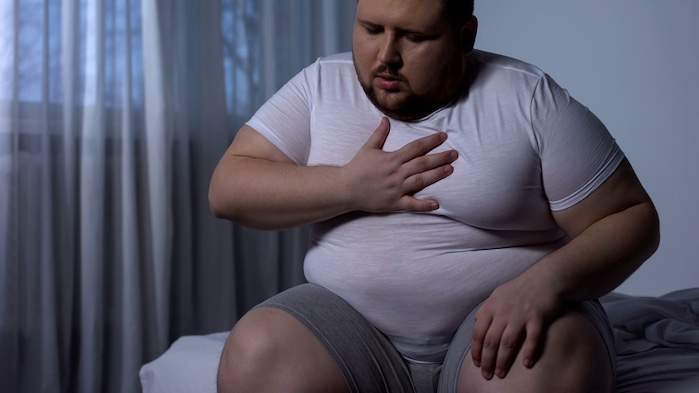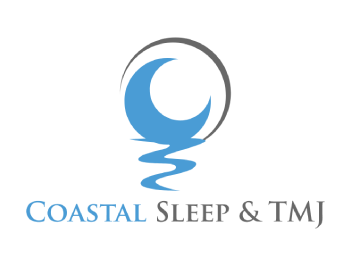Anyone, even young children, can be diagnosed with sleep apnea or sleep-disordered breathing. However, there are certain key risk factors that everyone should be aware of and seek treatment if present. But first, it’s important to understand “What Is Sleep Apnea?” This will ensure that you get the proper diagnosis the first time and promptly address any related health risks.
If several symptoms exist, you may be more at risk for developing secondary health concerns. This is most commonly seen in adults who have gone years without sleep apnea treatment.

Risk Factors for Sleep Apnea
There are many common and not-so-common sleep apnea risk factors. Sleep study research has produced a list of the more common factors contributing to sleep apnea. Dr. Harper has seen patients with the following factors:
- Being male
- Over the age of 45
- Overweight, obese
- A large neck circumference
- Large tonsils
- Family history of OSA
- Diabetic
- Hypertensive, high blood pressure
Dr. William Harper will look for these and other visible risk factors and signs of sleep apnea. Common dental effects of sleep apnea include worn teeth and damaged teeth. Patients who have OSA often grind their teeth or clench their jaw. They may also sleep with their mouth open, which increases dry mouth and can cause halitosis and mouth sores over time.
Visit Dr. Harper’s dentist office in Poquoson, VA for preventive dental care. We can fix worn teeth and the other effects of OSA. Routine visits can allow us to monitor your overall health and changes in your oral health condition and discuss concerns you may have about your physical well-being. Sleep apnea can detrimentally impact your daily quality of life in many ways.
It can often affect the sleep quality of your sleep partner as well. Discuss any lifestyle habits or concerns during your next dental care visit or your consultation for sleep apnea. We can provide the most personalized care for your needs under one roof.
Why You May Be at Risk for Sleep Apnea
Age is the most common risk factor for developing sleep apnea. As we age, our muscles weaken, and our skin sags. The muscles are more likely to collapse in the back of your throat. Gender plays a factor as well. Men are more likely to have thicker and bigger necks compared to women. Their throat muscles are usually bigger and are more likely to collapse in the airway. People who are obese are at higher risk, too, for the same reasons. Obesity causes fatty deposits on the windpipe.
Your genetics and anatomy play a part, too. If you have family that have sleep disorders, you can inherit them. Genetics can mean that you’re predisposed to have a windpipe that’s more narrow than usual. You may also be more likely to have other conditions that make sleep apnea more prominent, like diabetes.
Sometimes, your anatomy creates the perfect storm for sleep apnea. Smaller windpipes naturally mean there are more chances of issues. Blocked nasal passages and a misaligned jaw can also cause sleep apnea. Misaligned jaws can cause a variety of problems, including TMJ disorders. However, many patients don’t realize that they can cause sleep apnea. Enlarged tonsils pose a problem as well, particularly in children.
Your lifestyle habits play a big part in your overall health. This is true, too, when it comes to sleep apnea. Smoking cigarettes can lead to a narrowing of the airways. Certain medications make it harder to breathe overnight. Drinking alcohol, too, has this effect. It depresses the brain’s ability to regulate breathing and can suppress breaths. Age-related conditions like dementia and strokes increase the chances of sleep apnea.

Sleep Apnea: What Are the Risks?
It is equally important for patients to fully understand the health risks associated with sleep apnea and sleep-disordered breathing. OSA can significantly increase your risk for various health concerns and, over time, can become life-threatening if untreated.
Patients with sleep apnea may also find it more difficult to manage existing diseases due to poor sleep’s impact on their body’s ability to function at its best.
Due to the continual oxygen deprivation during sleep, sleep apnea can increase the risk of sudden heart attack and stroke. Proper diagnosis and treatment for sleep apnea are the keys to restoring a better quality of life, decreasing your risk for other health problems, and improving overall wellness.
Sleep Apnea Risk FAQs
Risk factors can help us determine if you’re a likely candidate for sleep apnea. Learn more by reading the following commonly asked questions.
Is age a risk factor for sleep apnea?
Yes, age is considered a risk factor for sleep apnea. As people get older, the likelihood of developing sleep apnea increases. This is partly due to changes in the body with aging, such as decreased muscle tone in the throat and changes in the body’s ability to regulate breathing. Additionally, other age-related factors, like weight gain and other medical conditions, can contribute to the development of sleep apnea. However, sleep apnea can occur at any age, including in children, so age is just one of many factors that can influence the risk.
Who has the greatest risk of having sleep apnea?
People at greatest risk of having sleep apnea are those who are obese, especially men over the age of 40. Additional risk factors include having a thick neck, a family history of the condition, smoking, and the use of alcohol or sedatives. Postmenopausal women and individuals with certain anatomical features, like a naturally narrow airway, are also at higher risk.
Is snoring a risk factor for sleep apnea?
Snoring is a common symptom, not a risk factor for sleep apnea. While not all people who snore have sleep apnea, those who experience loud and chronic snoring, particularly when accompanied by other symptoms like gasping or choking during sleep, may be at higher risk of having sleep apnea.
Can sleep apnea damage your lungs?
Sleep apnea does not directly damage the lungs but can contribute to cardiovascular and respiratory problems that indirectly affect lung health. Repeated episodes of oxygen deprivation and disrupted sleep can lead to issues like high blood pressure, heart disease, and a reduced ability to regulate breathing. Additionally, people with sleep apnea are at a higher risk for conditions like chronic obstructive pulmonary disease (COPD), which can further impact lung function.
What are the most serious potential consequences of sleep apnea?
The most serious potential consequences of sleep apnea include an increased risk of cardiovascular problems, such as high blood pressure, heart attack, stroke, and heart failure. It can also lead to diabetes, metabolic syndrome, and daytime fatigue, which can increase the likelihood of accidents and impair quality of life. Additionally, untreated sleep apnea can contribute to complications like arrhythmias (having an abnormal heart rate) and worsen pre-existing respiratory conditions, posing significant health risks.
Are males more likely to suffer from sleep apnea?
Yes, males are more likely to suffer from sleep apnea than females. Sleep apnea is higher in men, particularly those who are middle-aged and older. Factors such as body fat distribution, hormones, and upper airway anatomy contribute to this increased risk. However, the risk for women rises after menopause, narrowing the gender gap in prevalence.
Schedule a Risk-free Consultation
Dr Harper is your sleep apnea treatment specialist in Poquoson, VA, providing solutions for all ages. If you or your partner snore or suffer from sleep apnea, call our office at (757) 600-6535 for affordable sleep apnea treatment in Hampton Roads.
